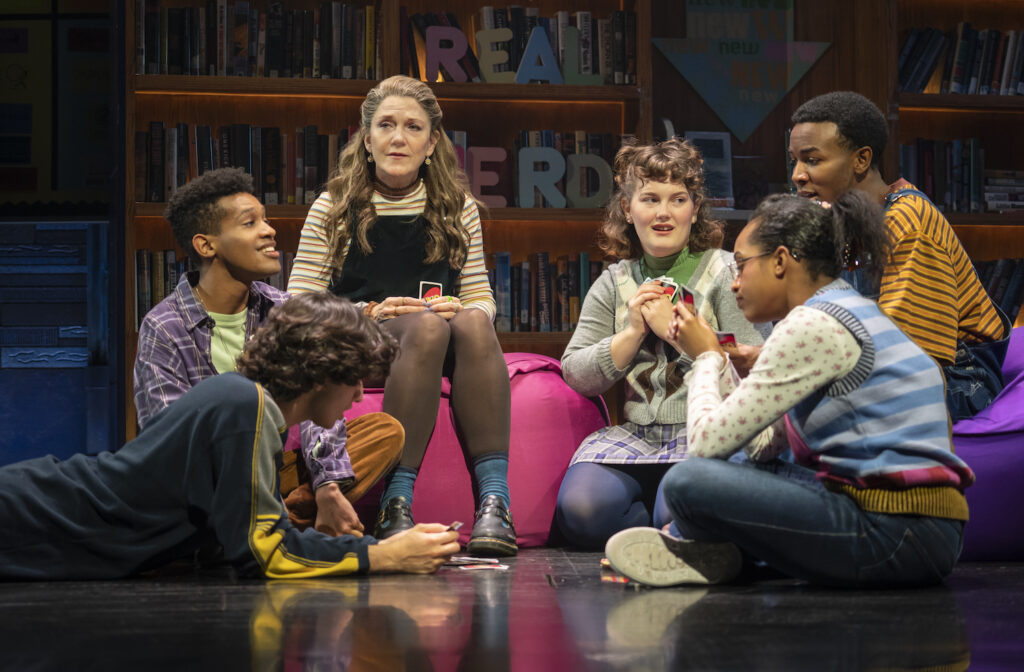I missed the top step by just a few inches, but it was enough to send me tumbling across the linoleum floor, the contents of my Trapper Keeper spilling down the hallway.
Richard Vojticek had been taunting me in the lunchroom for weeks. The culmination of his pursuits: a multi-level chase through Mayfield Middle School resulting in a bruised leg and ego, along with the requisite public humiliation from dozens of 8th graders. I thought bullying was part of the deal when you’re creative, quirky, and enjoy show choir more than football. I didn’t have the vocabulary to identify as gay at the time. It was the 1980s, at the height of the AIDS crisis, and the word for this pre-teen was associated with a hollow-faced Rock Hudson, AZT, and a future of discrimination.
Kimberly Akimbo, the new Broadway musical about a 16-year-old with a degenerative disease in which she ages at four times the average rate (with plenty of laughs, believe it or not), includes a Greek chorus of four intertwined teens who crush on each other and offer a decidedly rose-tinted retrospective on queer teen identity.
Lindsay-Abaire had originally written Kimberly Akimbo as a play with several successful regional productions and an Off-Broadway premiere. However, the script only showcased Kimberly’s core family — the teens’ addition was new.
“Honestly, those kids were my friends in high school,” said Lindsay-Abaire. “Like I just put my friends on stage, and their sexuality was just very matter of fact. There wasn’t an overt agenda.”
Tesori, whose Fun Home was nominated for the Pulitzer Prize and won the 2015 Tony Award for Best Original Score, recognizes that the evolution of queer narratives has exponentially changed in recent years.
“We did talk about a little of it because I think the intentionality and the responsibility,” Tesori recalled. “It’s very tricky because of the constant commodification of trauma that surrounds people of color and queer stories. We’re just now getting to more abundance of stories that contain, you know, the Netflix special where you see queer representation inside rom-coms. Was that possible five years ago? I had never seen it.”
“I think when you first start writing, at least when I did, it’s very confessional,” Tesori said. “It’s very based on — I think about my ninth-grade poetry — well, I burned it all — but then you get to the parts where you can explore the joy and the spectrum of experiences. Every time that we start something, it’s a question of why are we writing it? Why are we bringing it to the stage? And how is it going to hit its time? So we touched on it to ensure that we were very wide-eyed about that and then moved on.”
Kimberly Akimbo plays on Broadway at the Booth Theatre.








